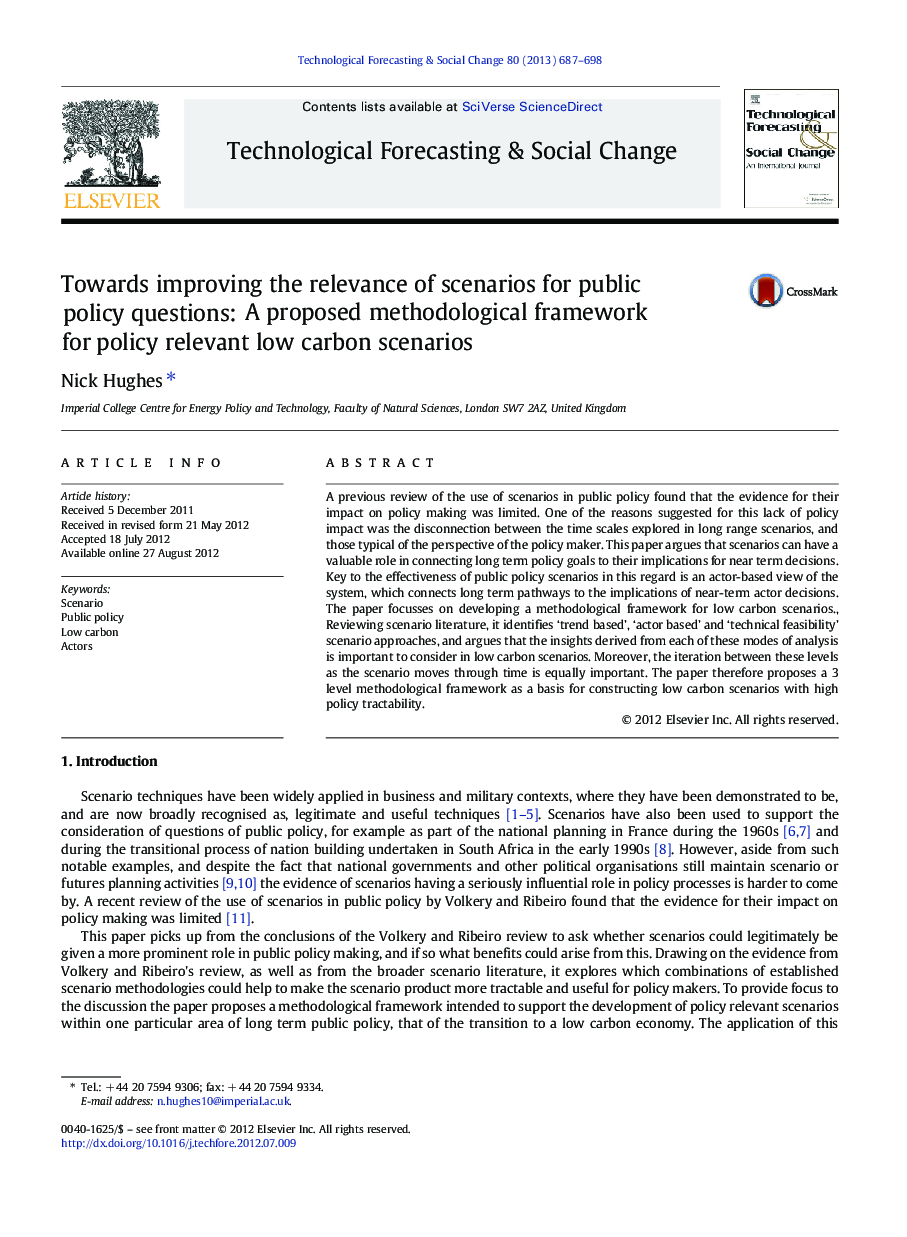| کد مقاله | کد نشریه | سال انتشار | مقاله انگلیسی | نسخه تمام متن |
|---|---|---|---|---|
| 896720 | 914854 | 2013 | 12 صفحه PDF | دانلود رایگان |

A previous review of the use of scenarios in public policy found that the evidence for their impact on policy making was limited. One of the reasons suggested for this lack of policy impact was the disconnection between the time scales explored in long range scenarios, and those typical of the perspective of the policy maker. This paper argues that scenarios can have a valuable role in connecting long term policy goals to their implications for near term decisions. Key to the effectiveness of public policy scenarios in this regard is an actor-based view of the system, which connects long term pathways to the implications of near-term actor decisions. The paper focusses on developing a methodological framework for low carbon scenarios., Reviewing scenario literature, it identifies ‘trend based’, ‘actor based’ and ‘technical feasibility’ scenario approaches, and argues that the insights derived from each of these modes of analysis is important to consider in low carbon scenarios. Moreover, the iteration between these levels as the scenario moves through time is equally important. The paper therefore proposes a 3 level methodological framework as a basis for constructing low carbon scenarios with high policy tractability.
► Aims of scenarios in public policy clarified
► Importance of relating long term aims to near term actor choices highlighted
► Methodological needs of effective low carbon scenarios explained
► Methodological framework for low carbon scenarios proposed
Journal: Technological Forecasting and Social Change - Volume 80, Issue 4, May 2013, Pages 687–698